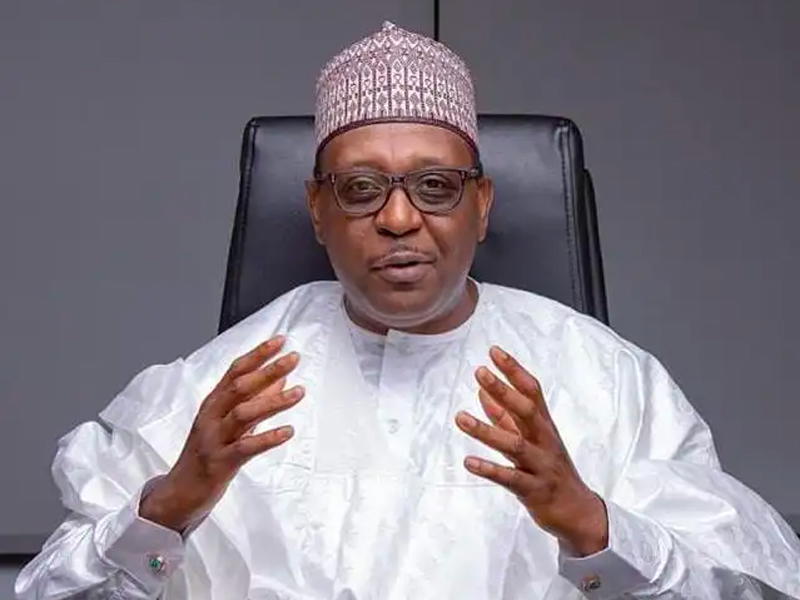FG reaffirms commitment to strengthening pharmaceutical inspection for public health

By Joseph Erunke, Abuja
The Coordinating Minister of Health and Social Welfare, Prof. Muhammad Ali Pate, has reiterated the federal government’s commitment to strengthening pharmaceutical inspection systems as a key strategy for safeguarding public health in Nigeria.
Prof. Pate made this known on Monday in Abuja while addressing participants at the National Pharmaceutical Inspectors’ Workshop themed: “Inspecting for Excellence: Best Practices in Pharmaceutical Inspection as a Key Driver of Public Health Safety in Nigeria.”
Speaking through the Permanent Secretary of the Ministry, Ms. Kachollom Daju, the minister emphasized that a robust pharmaceutical inspection framework is essential to ensure that medicines and other health products circulating in Nigeria meet global standards of safety, quality, and efficacy.
He noted that Nigeria, like many other countries, continues to grapple with the menace of counterfeit, substandard, and falsified medicines, which pose serious threats to citizens’ health and wellbeing.
“We cannot achieve universal health coverage if our pharmaceutical sector is undermined by poor-quality products and weak enforcement. Inspectors are the frontline guardians of our drug supply chain, and your work is indispensable in protecting lives,” he stated.
Describing pharmaceutical inspection as a cornerstone of public health, the minister said the training would equip inspectors with modern tools, best practices, and regulatory frameworks to enhance inspection effectiveness.
“Your work ensures that pharmaceutical products available in our market meet international standards. I urge you to take full advantage of this training, share experiences, and learn from one another,” he added.
Prof. Pate commended the Pharmacists Council of Nigeria (PCN) for organizing the workshop, describing it as timely and in alignment with the administration’s agenda to reform regulatory systems, strengthen institutional capacity, and build public trust in the healthcare sector.
The workshop drew participants from state pharmaceutical inspectorates, federal regulatory agencies, academia, and professional associations. Technical sessions focused on inspection methodologies, risk-based approaches, and inter-agency collaboration.
In his remarks, the Registrar of the PCN, Pharm. Ibrahim Ahmed, said the workshop aimed to equip inspectors with updated knowledge and global best practices to enable them perform their duties more effectively and uniformly across the country.
He acknowledged the resilience and dedication of pharmaceutical inspectors in carrying out their responsibilities despite challenges such as long travel distances, security concerns, and resistance from stakeholders.
“Every inspection and compliance check directly protects lives,” Ahmed emphasized, describing the workshop as an opportunity to strengthen capacity, renew commitment, and align with best practices.
He also highlighted the PCN (Establishment) Act, 2022, which empowers inspectors to seal illegal premises and prosecute offenders. He called for high ethical standards, professionalism, and resistance to undue influence.
Ahmed further noted that the PCN’s adoption of a Quality Management System (QMS) will help standardize inspections nationwide, eliminate subjective variations, and align with international benchmarks.
Also speaking, the Chairperson of the PCN Governing Council, Pharm. Wosilat Giwa, urged pharmaceutical inspectors to uphold the highest ethical standards and intensify enforcement against counterfeit and substandard medicines.
Describing inspectors as “frontline guardians of the nation’s health,” Giwa said their role is a sacred trust that demands integrity and unwavering dedication.
She explained that the structure of the Pharmaceutical Inspection Committees (PICs) and the Patent and Proprietary Medicine Vendors Licence Committees (PPMVLCs)—which include representatives from the Pharmaceutical Society of Nigeria (PSN) and the Association of Community Pharmacists of Nigeria (ACPN)—was designed to foster collaboration for more effective inspections.
Giwa warned inspectors against any form of compromise, noting that the credibility of the pharmacy profession depends on their conduct.
On his part, the Chairman of the National Pharmaceutical Inspectors Workshop, Dr. Nelson Uwaga, described inspectors as the public face of the PCN, charged with ensuring patient safety, regulatory compliance, and professional integrity.
He commended their role in enforcing laws, adhering to standard operating procedures, and upholding ethical values, calling for continued professionalism, unity, and internal discipline to maintain public trust.
Uwaga, however, highlighted persistent challenges, including illegal drug sales in open markets, unregulated online and social media pharmacies, diversion of controlled substances like tramadol, political interference in inspections, internal conflicts, and pressure from vested interests.
The post FG reaffirms commitment to strengthening pharmaceutical inspection for public health appeared first on Vanguard News.







